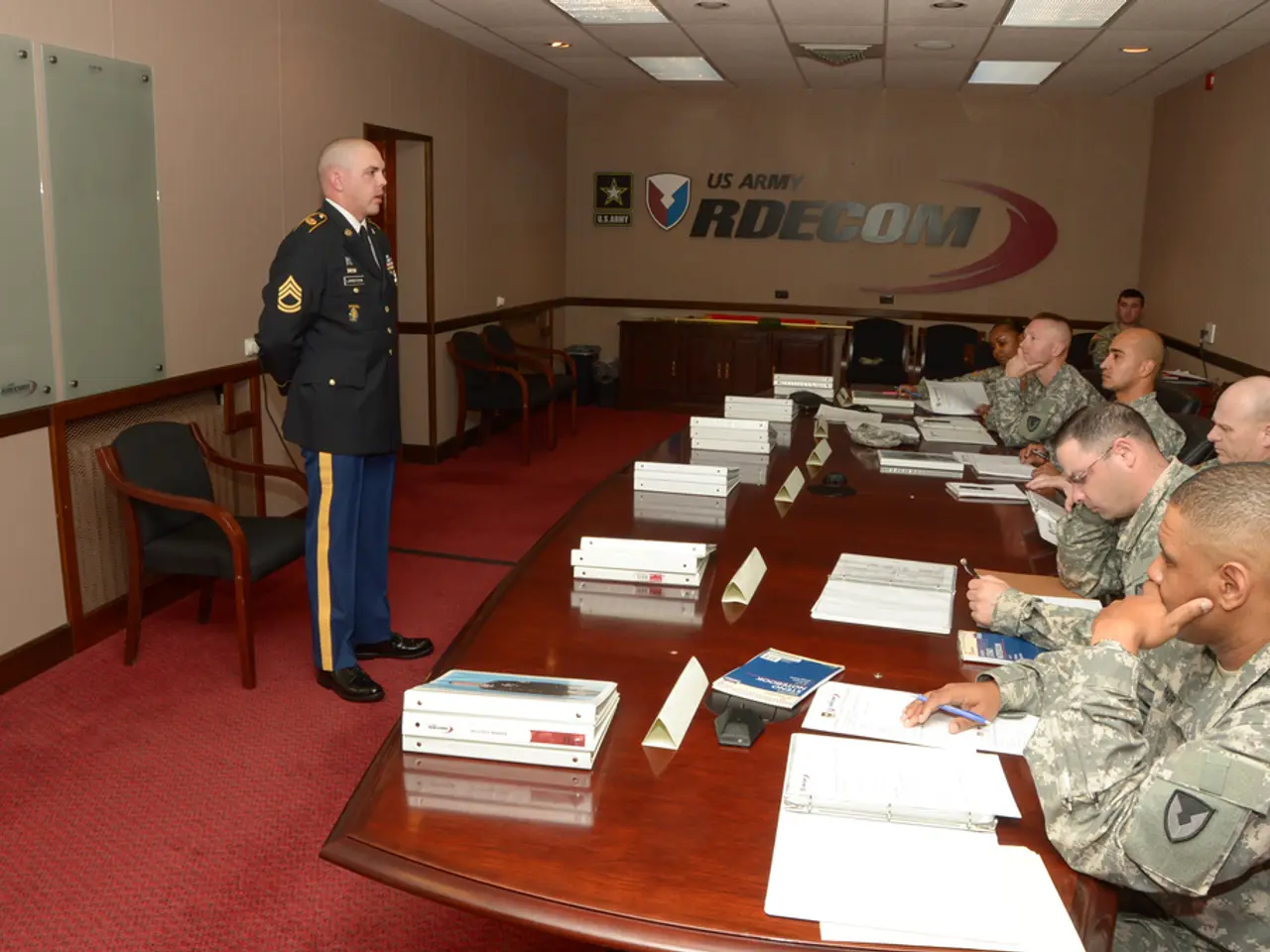Discussion of operational strategies at initial gathering among board members at Veterans Resource Center
Alabama Veterans Resource Center Board Holds Inaugural Meeting
The Alabama Veterans Resource Center (AVRC) held its first meeting on Thursday, marking a significant step forward in efforts to support veterans transitioning to civilian life. The meeting, held in the Alabama State Capitol's original archives room, was attended by the board members who were approved by Alabama Governor Kay Ivey late last month.
Greg Reed, Chair of the board and Secretary of the Alabama Department of Workforce, expressed gratitude to board members, the parties responsible for the board's creation, and Alabama's veterans. Reed highlighted the board's duties, which include assisting veterans in accessing benefits, career counseling, job placement services, mental health and wellness programs, education and training opportunities, and support for their families.
One of the key discussions during the meeting revolved around the need for an executive director for AVRC. Reed expressed his goal of finding an ideal candidate for the position, while Reed and Brown agreed to work together to investigate potential locations for the resource center's central office within Montgomery with proximity to education resources.
Robinson, a veteran of the U.S. Air Force, expressed her hopes that her service on the board will help improve Alabama's support structure for veterans transitioning to civilian society. She suggested a partnership with the Alabama Department of Workforce's local career centers to promote access to AVRC's services throughout the state.
Newton and Reed proposed a potential board trip to MTSU's campus in Murfreesboro, Tennessee to learn more about the university's veteran support programming. Newton pointed to veteran support services offered at Middle Tennessee State University as a potential model for AVRC.
Senator Andrew Jones, who fronted the legislation that founded the resource center, hopes the board will help continue improvements to Alabama's veteran support initiatives. He emphasised the need for public and private-sector collaborations to tackle issues such as food insecurity, mental health concerns, job placement, healthcare access, and transportation for veterans returning from service.
Doughty expressed his desire to address these very issues, reiterating his commitment to helping veterans in need.
Reed also called for the board to examine how it can utilize technology to reach veterans and help them understand the services offered by AVRC. He briefly discussed the potential creation of an AVRC foundation to help further fund the resource center's operations.
The board unanimously voted to approve the ratification of its incorporation application process and the ratification of the board's bylaws. The meeting concluded with a sense of optimism and determination, as the board members looked forward to their next meeting, planned for the afternoon of October 16.
The AVRC is poised to serve as a "clearing house" for veterans, helping them navigate the challenges of transitioning to civilian life and providing them with the resources they need to thrive. With the dedication and expertise of its board members, the AVRC is well on its way to making a meaningful impact on the lives of Alabama's veterans.








